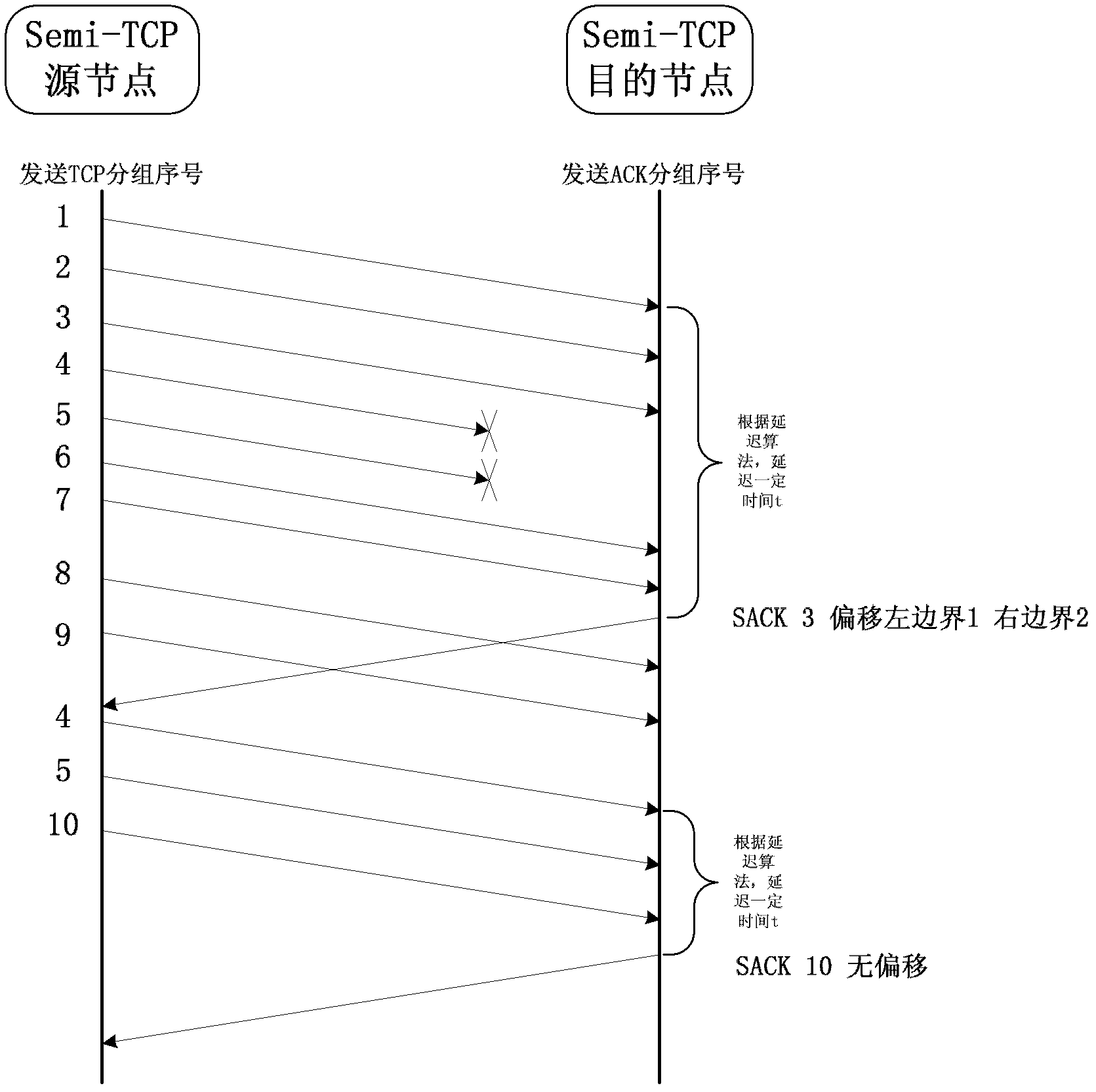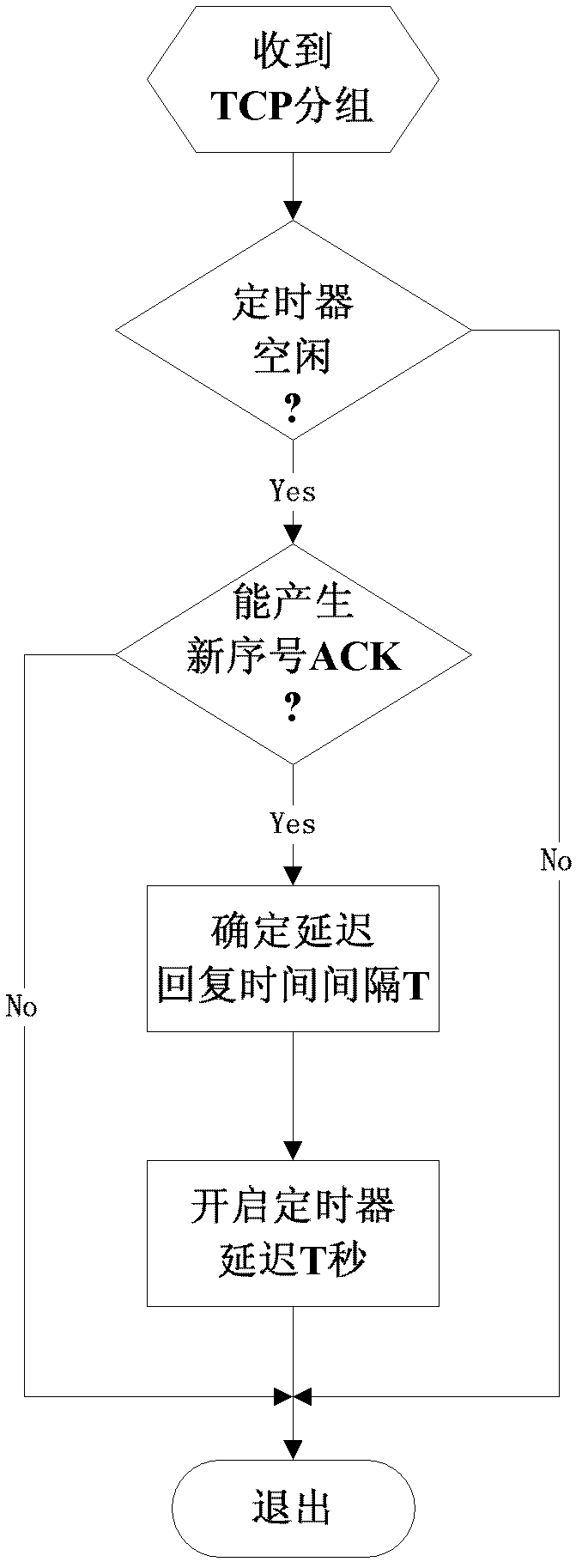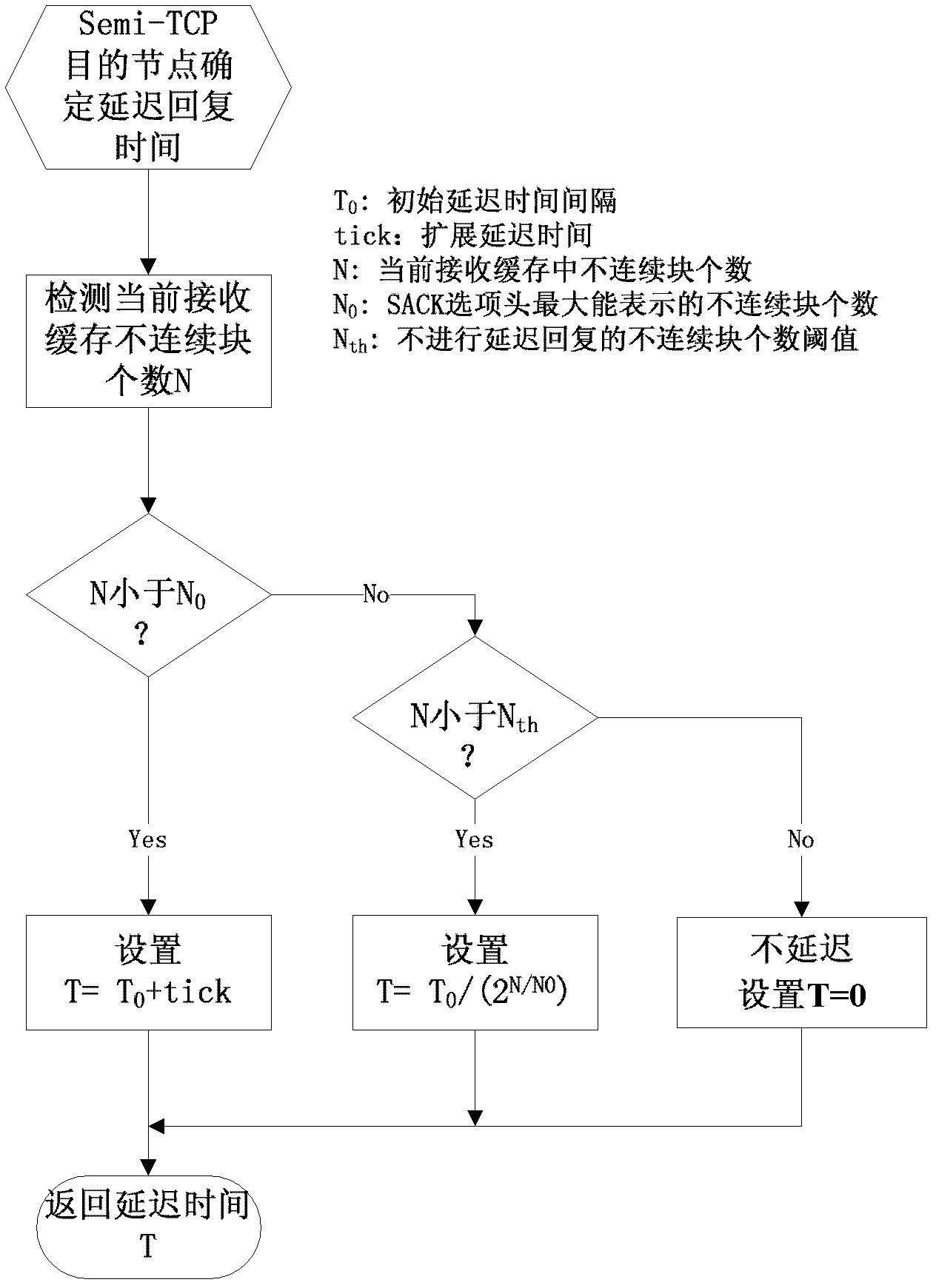Method for adaptively determining packet delayed sending for Semi-TCP (transmission control protocol)
A group confirmation and self-adaptive technology, applied in the TCP field, can solve problems such as bandwidth waste, network resource waste, timer overtime, etc., and achieve the effect of reducing reverse ACK flow, improving throughput performance, and improving throughput
- Summary
- Abstract
- Description
- Claims
- Application Information
AI Technical Summary
Problems solved by technology
Method used
Image
Examples
Embodiment Construction
[0028] In order to make the technical means, creative features, goals and effects achieved by the present invention easy to understand, the present invention will be further described below in conjunction with specific illustrations.
[0029] In order to avoid the sending of repeated ACK in the existing scheme, the present invention reduces the competition between the reverse ACK flow and the forward TCP flow. In the scheme, the destination node only receives the next packet when the TCP packet is expected to be received. The sending time of the ACK is delayed; after the delay time expires, the destination node replies with an ACK, so as to ensure that after each timer expires, the serial number of the replied ACK packet is updated compared with the serial number of the previous packet; otherwise, the destination node does not reply, The sending time of ACK is not delayed either.
[0030] Based on above-mentioned principle, concrete scheme of the present invention is as follow...
PUM
 Login to View More
Login to View More Abstract
Description
Claims
Application Information
 Login to View More
Login to View More - R&D
- Intellectual Property
- Life Sciences
- Materials
- Tech Scout
- Unparalleled Data Quality
- Higher Quality Content
- 60% Fewer Hallucinations
Browse by: Latest US Patents, China's latest patents, Technical Efficacy Thesaurus, Application Domain, Technology Topic, Popular Technical Reports.
© 2025 PatSnap. All rights reserved.Legal|Privacy policy|Modern Slavery Act Transparency Statement|Sitemap|About US| Contact US: help@patsnap.com



